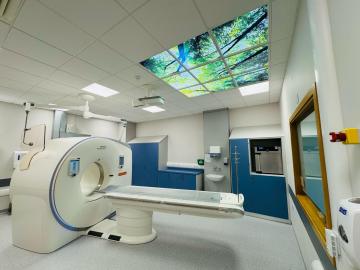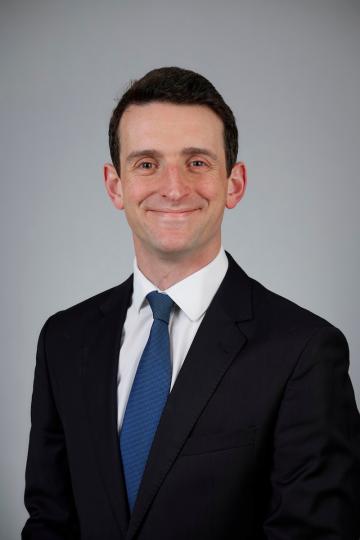Introduction
The Computed Tomography (CT) Department at St Vincents Private Hospital has two state-of-the-art 128-slice CT scanners. We offer an extensive range of diagnostic scans, specialist scans and treatments through our CT service.
Our team of highly trained Radiologists and Radiographers are experts in obtaining and interpreting CT scans. We have a broad range of expertise among our consultants, which enables us to provide high quality subspecialist imaging of all body regions. All CT scans are reported by Consultant Radiologists.
A computerised tomography (CT) scan is a non-invasive medical test that uses X-rays and a computer to create detailed images of the structures inside the body, including the internal organs, blood vessels and bones.
A CT scan can be used to diagnose conditions to include cancers, bone injuries, organ injuries, blood flow issues and stroke. It can also be used to monitor many conditions and as a guide for further tests or treatments such as biopsies, drainages or ablations.
A referral letter from a consultant or GP is required before booking any diagnostic investigation.

- You will receive an appointment letter which will mention anything you need to do to prepare for your scan. Unless you are otherwise informed, you may follow your regular daily routine and take food and medications as normal. Some patients may require special preparation prior to their examination (e.g. CT Colonography/CT Cardiac scans). You will be advised of any necessary preparation in advance of your scan.
- Depending on the type of scan you are having, you may be asked to attend 1 hour before your examination time and be given a special drink containing a contrast agent on arrival in the Department.
- Again, depending of the type of scan you are having, an injection of a contrast agent into a vein in your arm may be necessary to help obtain a clearer picture of the area being examined. This injection very rarely causes any adverse effects but do tell the Radiographer if you have any allergies, kidney problems, high blood pressure, gout or diabetes as special arrangements may need to be made.
- Women of childbearing age (12-55) should inform our staff at the time of making their appointment if there is any possibility that they are pregnant. CT scans aren’t usually recommended for pregnant women unless in the case of an emergency.
- It is recommended to wear loose, comfortable clothes as you may be able to wear these during the scan. Try to avoid wearing jewellery and clothes containing metal (such as zips), as these will need to be removed.
- For the scan, you may be asked to change into a gown and to remove all metal from the region of interest. If a contrast agent is required for your scan, a cannula will be inserted into a vein in your arm in the preparation area.
- During the procedure, you will lie on a table that can slide in or out of the CT scanner which is a donut/ring shaped machine.
- Your Radiographer will then position the table so that the part of your body being scanned is lying in the centre of the scanner. You may need to position your arms behind your head resting on a pillow. The table will move backwards or forwards very slowly and the X-ray unit will rotate around you to help produce images from all directions.
- Your Radiographer will operate the scanner from behind a window, and he or she will be able to see, hear and speak to you during the procedure.
- It can take several minutes to complete the scan and it’s important to lie very still during the process. At certain points during the scan you may be asked follow breathing instructions such as to hold your breath or not to swallow. The Radiographer will inform you of the breathing instructions and practice them with you before the scan begins.
- The whole scanning process will take between 15-30 minutes, depending on the different angles and number of pictures needed. The images are stored in a digital format and shown on a computer screen.
- Once the CT scan is complete, the Radiographer will assist you off the table.
- If you have been given an injection of contrast agent, you will be advised to drink additional water for the remainder of the day and to avoid items that may dehydrate you such as tea, coffee or alcohol.
- You will then be allowed return home or to your ward. The images will be reviewed by a Consultant Radiologist. The Radiologist will send the report to your referring doctor.
Radiation Safety Information for Patients 
Consultant Radiologists
Consultants who perform this service
How to get in touch
Contact information
Computed Tomography (CT) Contact
GP Referral information
Tel: (01) 263 8030
Email: radiology@svph.ie
Healthlink e-referrals
Please ensure to include:
-
Patients Full Name
-
Patients Date of Birth
-
Patients Address
-
Specific CT scan required
-
Clinical Information/Reason for referral
-
GP Signature and IMCN
-
Date of Referral
CT’s are available by appointment only












